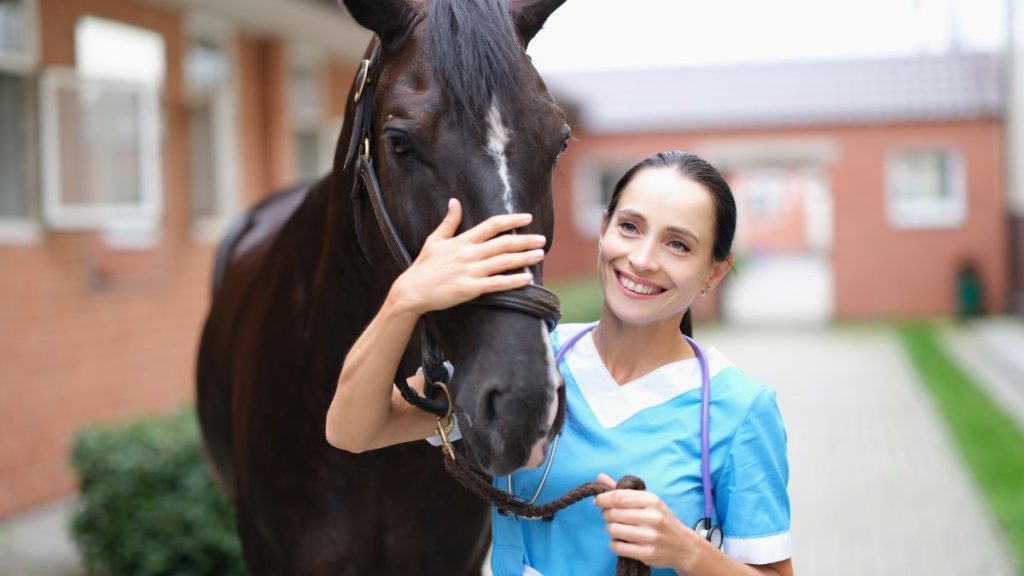Veterinarians (also known as vets) are doctors of animal health. They prevent, diagnose, and treat diseases and other health issues in all kinds of animals. They can work in small clinics, emergency and specialist hospitals, zoos and aquariums, wildlife parks, universities, research facilities, pet food and drug manufacturing companies, and conservation and government organisations.
If you’re passionate about animals and their welfare, love science, and are driven by emotional rewards rather than financial ones, becoming a veterinarian could be perfect for you.
What skills do I need as a veterinarian?
- Excellent communication abilities
- Strong passion for animal health and welfare
- Empathy and emotional resilience
- Great organisational and time management skills
- Attention to detail and observation
- Technical skills with machinery and lab equipment
- Scientific aptitude and inquiring mind
- Surgical knowledge and capabilities
What does the job involve?
- Examining, diagnosing, and treating sick and injured animals
- Carrying out general check-ups
- Administering preventative treatments like vaccinations
- Prescribing and giving medications
- Taking cell and tissue samples
- Performing diagnostic tests
- Conducting surgery on animals
- Managing animal health records
What industries do veterinarians typically work in?
- Professional, Scientific and Technical Services
- Agriculture, Forestry and Fishing
What Career Cluster do veterinarians belong to?
Veterinarians are primarily part of the Guardian Cluster because they focus on health, wellbeing and safety – in this case, for animals. They also use some skills similar to Informers (sharing knowledge with pet owners).
What kind of lifestyle can I expect?
Veterinarians usually work full-time, with limited part-time opportunities. Full-time vets often work more than standard hours each week, as the role can require after-hours emergency care and weekend work. You’ll work in various environments, both indoors and outdoors. The job can be emotionally demanding as you may encounter difficult situations.
While starting salaries vary by country and region, most veterinarians can expect to earn an average to above-average income throughout their career. The demand for veterinarians is growing in many countries, with particular need in rural and regional areas.
How to become a veterinarian
To practice as a vet, you’ll typically need to:
- Complete high school with a strong focus on science subjects
- Graduate from an accredited veterinary medicine program at university/college
- Obtain necessary licensing or registration in your country/region
- Complete any required practical experience
- Begin working as a qualified veterinarian
The exact requirements and length of study will vary depending on your location, but most veterinary programs take 5-6 years to complete.
What can I do right now to work towards this career?
If you’re in high school and interested in becoming a vet, here are some steps you can take:
- Volunteer with animals at local shelters or rescue organisations, or look for work experience opportunities at vet clinics or animal hospitals
- Talk to practicing veterinarians about their experiences. If you don’t know anyone, see if you can watch videos or documentaries about a career as a vet.
- Focus on English, Mathematics, and science subjects at school, and research your future study options
Where can I find more information?
- Australian Veterinary Association
- New Zealand Veterinary Association
- British Veterinary Association
- Veterinary Council of Ireland
- American Veterinary Medical Association
- Canadian Veterinary Medical Association
Similar careers to veterinarian
- Animal Trainer
- Farmer
- Marine Biologist
- Veterinary Nurse
- Agronomist
- Pet Groomer
- Wildlife Conservationist
Find out more about alternative careers on our Job Spotlights page.


